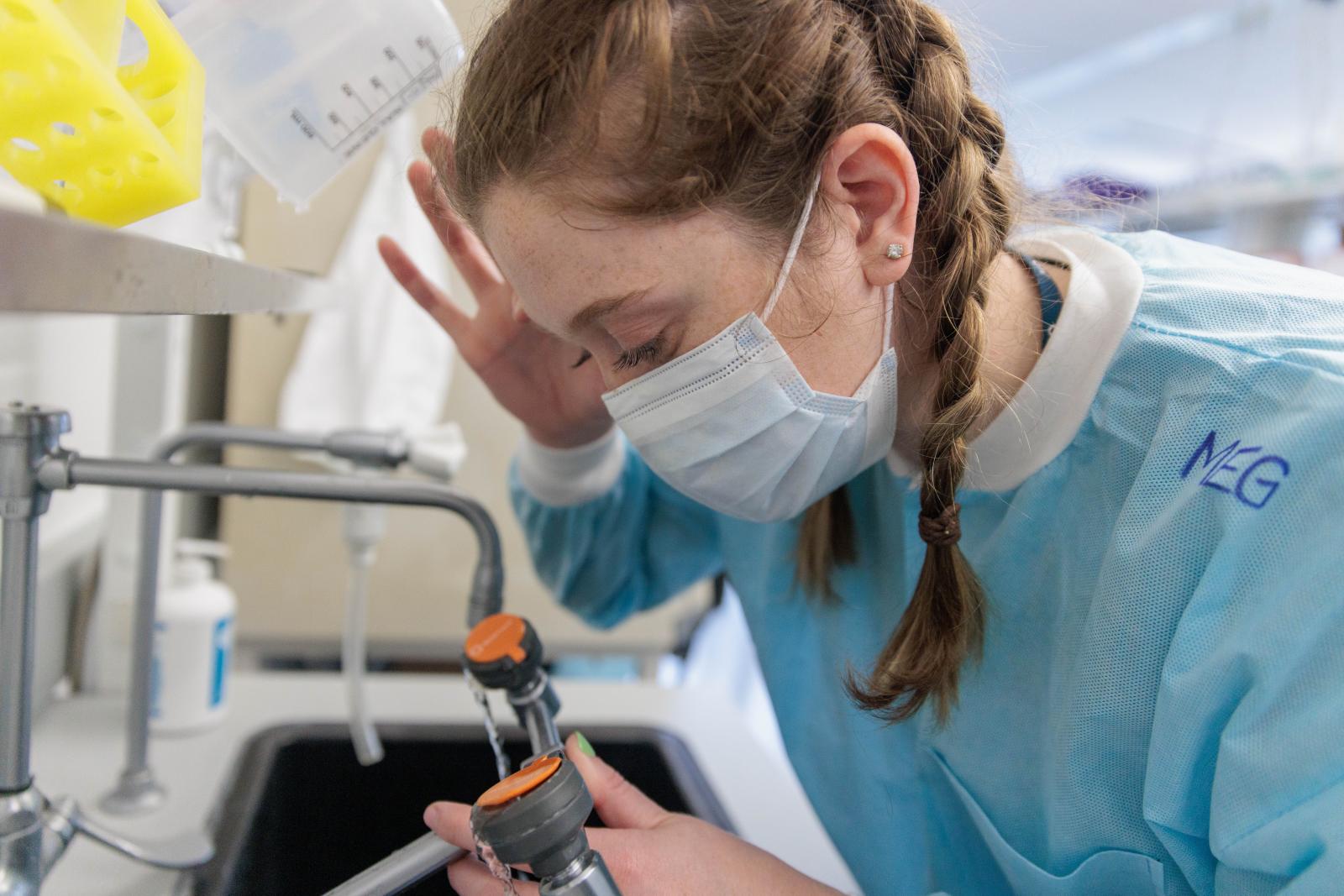Biological Exposures
To prevent exposures to blood or potentially infectious materials, always use Universal Precautions by wearing gloves, goggles, and other barrier devices. However, if your skin, mucous membranes or your eyes become exposed you should:
- CUTS: Immediately apply pressure with a clean paper towel directly on the laceration. Go to a nearby sink and flush the open wound with copious amounts of water. Apply additional direct pressure until all of the bleeding has stopped. Then, apply antiseptic and a sterile dressing
- PUNCTURES: A puncture wound should instead be made to bleed immediately to better wash out the wound. Wash with copious amounts of water, apply antiseptic to the surface of the puncture and a sterile dressing.
- SPLASHES OR INDIRECT CONTACT: Immediately flush the affected area with water and then wash with soap and water. If potentially infectious material comes into contact with eyes or mouth, flush with water for a minimum of 15 minutes at eyewash station or potable water source and notify your supervisor immediately. All eye injuries require immediate medical attention. Call GW Police at 202- 994-6111 and notify your supervisor.
Report ALL injuries to the PI immediately and seek medical evaluation, treatment, and post exposure follow-up at the Employee Health Office at GW Hospital (900 23rd St., NW, Suite G-1090, Phone: 202-715-4275). Students should go to the Students Health Office at the University Student Center. After hours treatment can be received at the GW hospital emergency room.
In addition, ALL injuries or potential hazard exposure (cuts, bites, punctures, etc) should be reported to the Office of Risk Management at risk![]() gwu [dot] edu IMMEDIATELY FOLLOWING THE OCCURRENCE. If the exposure involves a bloodborne-pathogen or recombinant DNA please submit a copy of the report to the Office of Research Safety at labsafety
gwu [dot] edu IMMEDIATELY FOLLOWING THE OCCURRENCE. If the exposure involves a bloodborne-pathogen or recombinant DNA please submit a copy of the report to the Office of Research Safety at labsafety![]() gwu [dot] edu.
gwu [dot] edu.
Medical Emergency: If the injury requires immediate medical attention, call GWPD at 202-994-6111 or call 911.


